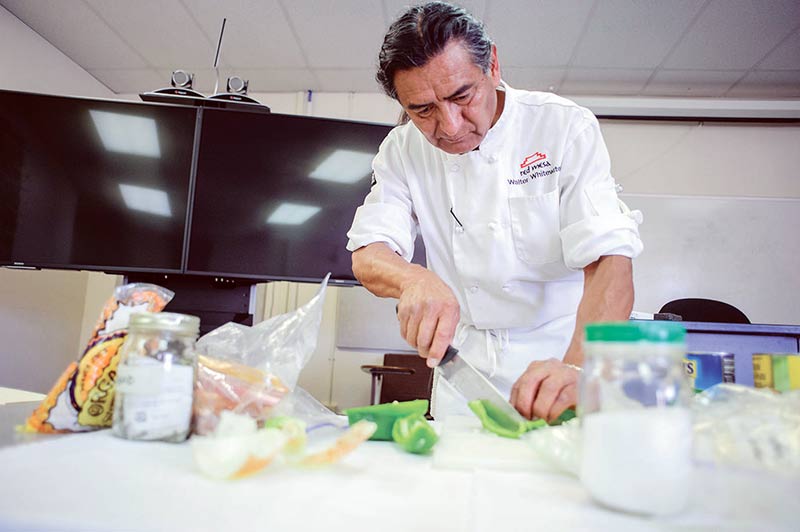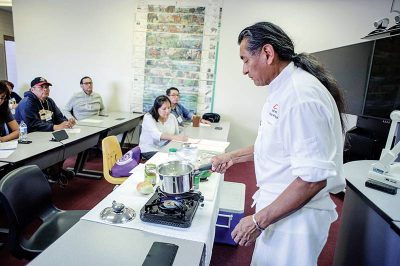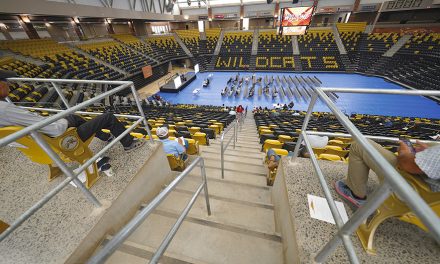
Making families, communities healthier

Navajo Times | Adron Gardner Chef Walter Whitewater slices into a green pepper at the Diné College Diné Bich'iiya' summit in Tsaile, Arizona, on April 7.

Navajo Times | Adron Gardner
Chef Walter Whitewater slices into a green pepper at the Diné College Diné Bich’iiya’ summit in Tsaile, Arizona, on April 7.
TSAILE, Ariz.
Chef Walter Whitewater explained that food can either have great health benefits or be an individual’s worst nightmare, but it all depends on the person.
As Whitewater stirred pinto beans he would use to make pinon chili beans, the self-taught cook told a group that after experiencing a health scare he realized that he had to change his diet and how he prepares food.

Navajo Times | Adron Gardner
Chef Walter Whitewater cooks away for a class the at Diné College Diné Bich’iiya’ summit in Tsaile, Arizona, April 7.
“I realized what food could do. It can hurt you by how it is being used.” Whitewater was one of many speakers and food demonstrators at Diné Bich’iiya’, a three-day summit held at Diné College. The goal was to motivate and teach ways to achieve a healthy diet through traditional farming and the use of healthy ingredients. The summit also provided information on concepts such as food sovereignty and food policy.
“This is needed and it’s great they brought these great organizations together,” said Lane Franklin, an AmeriCorps member who works at the Development Education Assistance Program in Navajo, New Mexico. Franklin, who is also a gardener, used the summit as a resource to get in touch with different entities like Native Seeds, which was established in Tucson.
In an attempt to take back the community, his program has worked on a community garden. The plan is to partner with Native Seeds to reach the goal of revitalizing the community of Navajo. “We have a garden that we’ve been working on all winter and spring, and a cornfield that one of the founder’s (of DEAP) father donated to us,” said Franklin. “Our school has big ambition. We want to revive the economy of Navajo.”
To read the full article, pick up your copy of the Navajo Times at your nearest newsstand Thursday mornings!
Are you a digital subscriber? Read the most recent three weeks of stories by logging in to your online account.







 Highway 264,
Highway 264, I-40, WB @ Winslow
I-40, WB @ Winslow